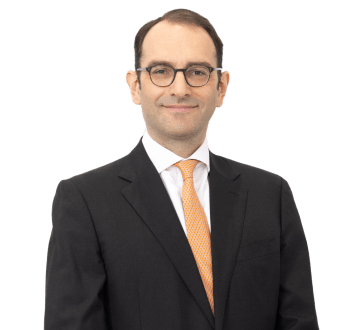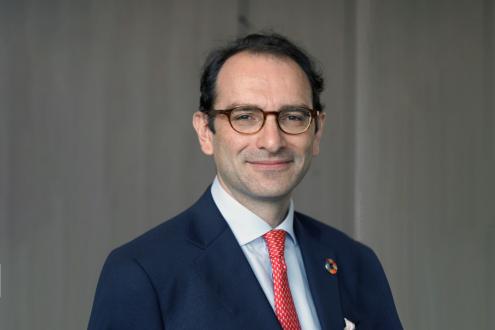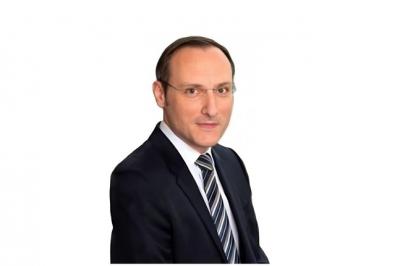Navigating the Investment Landscape: Insights from Janus Henderson's Head of Asia on Fear, Opportunity, and Timeframe

Andrew Hendry of Janus Henderson Investors
Aug 28, 2023
In the ever-evolving world of investment, understanding the current sentiment of investors is pivotal. Our recent survey on the evolution of Asia’s wealth management markets and the outlook ahead shed light on the contemporary mindset of today’s private clients in Asia, and who better to decipher these findings than Andrew Hendry, Janus Henderson’s Head of Asia? Delving deep into the results, Andrew identified three salient themes that dominate the present-day investment narrative. Join us as we traverse these trends, unravelling investor fears, discovering hidden opportunities, and understanding the significance of investment timeframes in today’s market.
Building upon the results recorded in our recent survey, Andrew offered comment on the three dominating themes which emerged from the investment perspective: fear, opportunities, and timeframe.
Widespread concerns
Andrew noted the prevailing fear among investors. Many are sitting on cash reserves, adopting a defensive stance towards the market. “Those we surveyed are very, very defensive,” Andrew reports. “They're very worried about all the things that legitimately people should be concerned about. That element of fear is not a surprise.” Reported anxieties stemmed from potential risks, a sentiment Andrew finds unsurprising. Interestingly, he anticipates a shift in this attitude when the survey is conducted again next year, leading one to ponder what future attitudes may prove to be.
Searching for a win
On the opportunity front, many investors are gravitating towards low-risk options like fixed deposits and money markets, reports Andrew. These avenues offer decent returns ranging between 3% to 5% based on the currency, and are alluring to those who are looking to tread carefully. “It's a nice excuse not to have to do anything risky because investors can sit on cash. To some extent people feel like they're being paid to wait,” he reports. However, a compelling observation was the recognition of promise in high-prospect sectors like technology, healthcare, and artificial intelligence. Yet, despite recognizing these sectors' potential, many hesitate to dive in.
Paralysed by fear?
Timeframe remains a significant concern, highlighting the difference between individual and professional investors. The latter, which includes entities like government pension funds and sovereign wealth funds, tends to be more risk-tolerant. They're keen on seizing opportunities presented by reduced market prices. In contrast, individual investors, even those with high net worth, seem paralyzed by fear.
“There is something of a hangover from last year,” reports Andrew, commenting on the findings on the survey. “People did lose money, especially people that unfortunately sold in 2022, meaning they will have locked in those losses.” And this attitude is causing them to miss out on potential gains.
Andrew highlighted with clear data that major stock indices such as the Dow Jones, S&P 500, and Nasdaq are all showing positive growth. Similarly, European markets like the DAX and CAC 40, which are often viewed negatively, are also delivering strong returns. However, this positive trend is not reflected in Asian markets, especially in China, which are seeing a decline. And yet, despite there being easily observable growth opportunities globally, many individual investors are choosing to keep their money in time deposits, thinking it's safer and more stable. Given this, Andrew questions if financial advisors can guide their clients to think more long-term, helping them tap into the growth opportunities they're currently overlooking in the stock markets.
He notes that investors often lament past missed opportunities, and while the discomfort investors are going through in the current environment is understandable, Andrew believes this is a matter of changing perspective.
“This is what it feels like to buy the dip, it’s uncomfortable because you are going against the grain and unhitching from herd mentality. Ultimately, time in the market will prevail and it helps if you get the timing right as well.”
Strategising Client Engagement
Even though offering this sort of advice may be challenging, it could pay off in the near future. “Advisors have to think which path do they want to do? Do they want to just acquiesce to what the clients want and their fear? Or do they want to more heavily focus on opportunities?” Andrew noted that when the usual high-interest rates drop, clients will look for better investment options. But by then, the best opportunities might have passed.
Andrew mentioned that at Janus Henderson, they handle sectors like healthcare and technology. Both of these sectors have been performing well. These areas focus on solving enduring issues. For example, regardless of economic changes, there will always be a need for healthcare solutions as people get sick and new treatments are required. Andrew highlighted how some companies that developed new treatments for diseases like Alzheimer's saw their stock prices soar.
Guiding clients down a difficult road
Turning his attention to the challenges, Andrew took the opportunity to respond to the sentiment that, in the current market climate, costs can be high, and earnings can be low, and it has been harder to make money.
Andrew said that there are a few things that can be done. Managers should talk to clients in smarter, more granular ways. This means figuring out which clients will be open to certain investment ideas and which won’t. For example, doctors or people who work in healthcare might be more interested in opportunities in the medical field. “We need to focus on clients who are open and positive about our ideas. It's essential to group clients based on their overall interests, as well as the specific sectors they are involved in on a more individualised basis.”
Guiding the RMs
Bringing the conversation to a close, Andrew commented that about the need to support relationship managers (RMs). RMs sometimes find it hard to explain why a client should invest in something. To help with this, RMs should work closely with investment consultants, and even the people who manage the funds. These experts might provide a clearer story or even offer a fresh perspective that can persuade sceptical clients. Whether discussing specific investments or broader themes, having an outside voice can be beneficial.

CEO Asia at Janus Henderson Investors

More from Andrew Hendry, Janus Henderson Investors
Latest Articles






